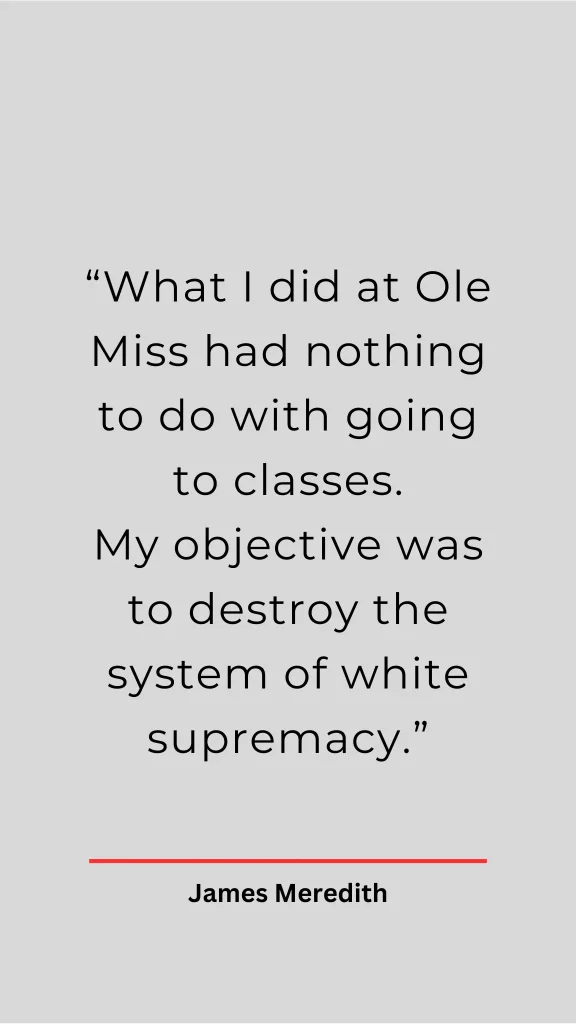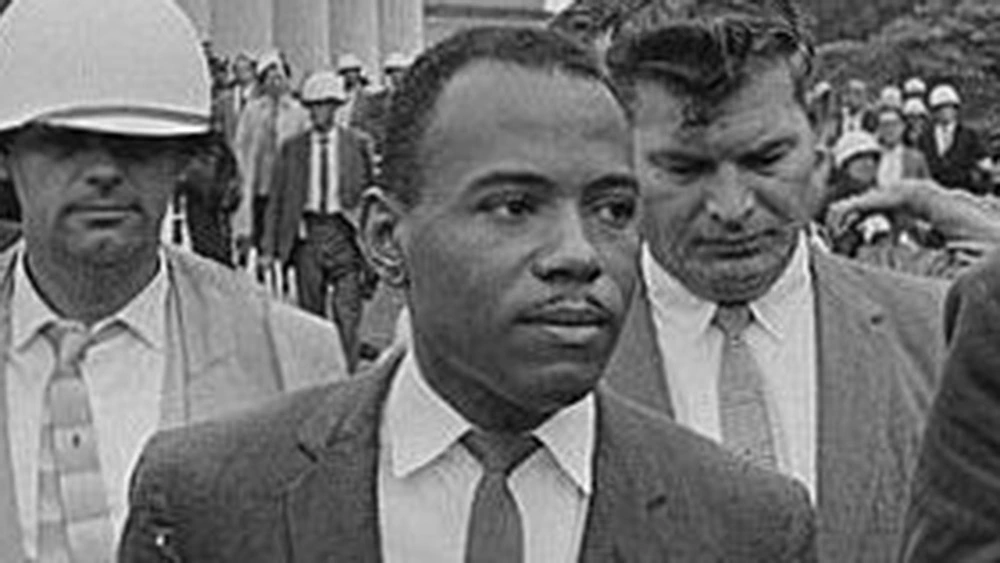James Meredith’s groundbreaking achievements symbolize the courage and determination of the civil rights movement. As the first African American to integrate into the University of Mississippi in 1962, Meredith faced violent opposition but persevered, becoming a beacon of hope in the fight against segregation.
From Small-Town Mississippi to Military Service
Born on June 25, 1933, in Kosciusko, Mississippi, James Meredith grew up in a segregated South where opportunities for African Americans were limited. Despite these challenges, he excelled academically and later enlisted in the U.S. Air Force, serving from 1951 to 1960. His military service instilled in him the discipline and resilience that would define his future activism.
Challenging Segregation at Ole Miss
In 1961, Meredith applied to the University of Mississippi, commonly known as “Ole Miss,” a deeply segregated institution. Despite meeting all academic requirements, he was denied admission because of his race. With the support of the NAACP and legal advocates, Meredith filed a lawsuit that culminated in a U.S. Supreme Court ruling in his favor.
On September 30, 1962, Meredith became the first African American student to enroll at Ole Miss. His enrollment incited a violent riot on campus, fueled by segregationists and defiance from state officials. The chaos resulted in two deaths, numerous injuries, and the deployment of federal marshals and the National Guard by President John F. Kennedy to restore order.
Amid hostility and isolation, Meredith persevered, earning a political science degree in 1963. His courage dismantled a key barrier in education, becoming a landmark moment in the civil rights movement.
James Meredith: March Against Fear
In 1966, Meredith launched the Meredith March Against Fear, a solo protest from Memphis, Tennessee, to Jackson, Mississippi, aimed at encouraging African Americans to register to vote and resist racial oppression. On the second day of his march, he was shot and injured by a white supremacist.
The attack mobilized prominent civil rights leaders, including Martin Luther King Jr. and Stokely Carmichael, who continued the march alongside thousands of supporters. Meredith later rejoined the march, embodying resilience and determination. The march highlighted the ongoing struggle for racial equality and voter rights, inspiring widespread activism.

An Independent Voice in Civil Rights
James Meredith often charted his own course, distancing himself from mainstream civil rights organizations and viewing his activism as a deeply personal mission. He believed in self-reliance, faith, and education as tools for empowerment.
After graduating from Ole Miss, Meredith earned a law degree from Columbia University and pursued various careers in politics, writing, and public speaking. Though his views sometimes diverged from traditional civil rights strategies, he remained a steadfast advocate for African American empowerment and education.
A Legacy of Courage and Determination
James Meredith’s historic integration of the University of Mississippi and his activism during the civil rights movement forever changed the landscape of American society. His bravery in the face of violent resistance not only broke barriers in higher education but also inspired others to fight for justice and equality.
Meredith’s story serves as a powerful reminder of the impact one individual can have in challenging systemic injustice. His legacy continues to inspire generations, proving that courage and perseverance can spark transformative change.












That was a turbulent year. Less than a month after Meredith entered Ole Miss, the Cuban Missile Crisis erupted. So President Kennedy was first tried on the Home Front and then on the World Stage within days.